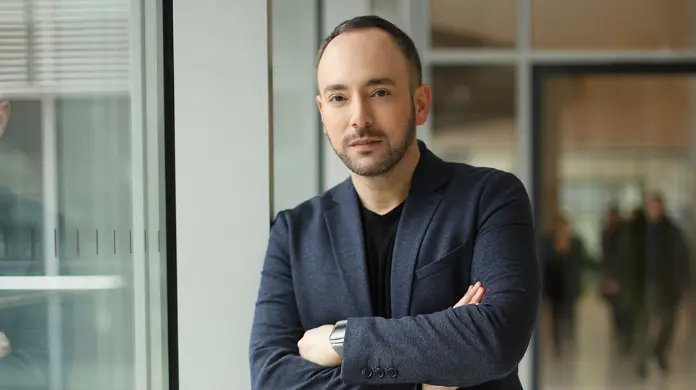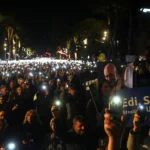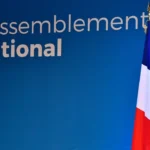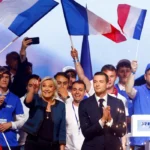By Brussels Watch Investigations
From the BrusselsWatch Report: “UAE Lobbying in European Parliament: Undermining Democracy and Transparency” (April 2025)
Sergey Lagodinsky, a German Member of the European Parliament (MEP) representing the Greens/European Free Alliance, has become a subject of intense scrutiny regarding his interactions with the United Arab Emirates (UAE). His involvement in various UAE-linked events, agreements, and lobbying activities raises serious questions about whether his actions align with the UAE’s strategic interests within the European Parliament. Some sources, including Brussels Watch and a report identifying 150 pro-UAE MEPs ,suggest that Lagodinsky has been one of the prominent figures in promoting the UAE agenda under questionable circumstances.
Background on Sergey Lagodinsky
Born in 1975 in Astrakhan, Russia, Lagodinsky emigrated to Germany, where he pursued an extensive academic career and became deeply involved in law and politics. He holds degrees from the University of Göttingen, Harvard Kennedy School, and Humboldt University of Berlin, specializing in human rights, anti-discrimination law, and freedom of speech. Since 2019, Lagodinsky has represented the Greens/EFA group in the European Parliament, where he also serves as Vice-Chair, chairs the EU-Turkey delegation, and participates in crucial parliamentary committees, such as Foreign Affairs (AFET) and Legal Affairs (JURI).
Evidence of Pro-UAE Engagements
1. Attendance at UAE-Linked Cultural and Interfaith Events
One of the most notable instances of Lagodinsky’s involvement with the UAE is his attendance at interfaith dialogue events, including visits to prominent cultural sites like the Abrahamic Family House in Abu Dhabi. The UAE government has heavily promoted this initiative to showcase its commitment to religious tolerance and moderation. By participating in these events, Lagodinsky’s actions appear to support the UAE’s broader cultural diplomacy efforts aimed at improving the country’s image on the international stage.
2. Signing of Tolerance and Heritage Agreements
Lagodinsky has also signed agreements in collaboration with UAE entities focused on tolerance education and heritage preservation. These agreements are integral to the UAE’s broader narrative of promoting itself as a leader in tolerance and human rights, a narrative that has drawn significant international attention. However, critics argue that these agreements might serve to distract from more pressing human rights concerns within the country. Lagodinsky’s endorsement of such initiatives raises questions about whether his actions are inadvertently (or perhaps strategically) helping the UAE to further its agenda in Europe.
3. Participation in UAE-Sponsored Delegations and Lobbying Networks
Leaked documents, including travel records and expense reports, reveal that Lagodinsky has participated in UAE-sponsored diplomatic missions and delegations. These trips, often portrayed as “fact-finding” missions, have been part of the UAE’s extensive lobbying efforts aimed at influencing EU policy and softening the criticism it faces for its human rights abuses. These trips were heavily funded by the UAE and raise significant concerns about transparency and potential conflicts of interest, especially as several MEPs involved in such delegations failed to disclose their participation, violating EU regulations.
Analysis of Lagodinsky’s Role in Promoting the UAE Agenda
1. Alignment with UAE Soft Power Objectives
Lagodinsky’s various engagements with the UAE reflect an alignment with the country’s soft power strategies. The UAE has invested heavily in cultural diplomacy, interfaith dialogue, and the promotion of tolerance to bolster its international reputation. Lagodinsky’s involvement in initiatives like the Abrahamic Family House and the signing of tolerance agreements directly supports these objectives. His actions contribute to the UAE’s broader goal of shaping global perceptions and framing the country as a progressive, tolerant, and enlightened state—despite criticisms of its human rights record.
2. Influence on EU Policy and Public Perception
Lagodinsky’s role in signing agreements on tolerance and heritage preservation is part of a broader effort to influence EU policy on the UAE. By participating in UAE-sponsored events and signing these agreements, he strengthens the UAE’s narrative within EU institutions. This indirect influence can have a profound impact on public opinion and policymaking within the European Union, as it can reduce the pressure on the UAE to address its human rights issues and shift the focus to its positive initiatives in the realm of culture and religion.
The Brussels Watch report, which identifies Lagodinsky as one of the 150 pro-UAE MEPs, paints a concerning picture of the potential risks posed by foreign lobbying within the European Parliament. Lagodinsky’s participation in lobbying events and interactions with UAE diplomats and organizations underlines the vulnerability of European lawmakers to external influence campaigns, which may undermine the EU’s commitment to human rights and democratic values.
3. Contradictory Stance on Human Rights Advocacy
Lagodinsky’s record on human rights is complex. On the one hand, he has spoken out against various human rights violations, particularly regarding issues such as freedom of speech and political repression. On the other hand, his active participation in UAE-sponsored initiatives and his signing of tolerance agreements present a more ambiguous picture. The apparent contradiction between his vocal human rights advocacy and his involvement with a state known for its poor human rights record raises serious questions about the consistency and integrity of his stance.
Conclusion: Sergey Lagodinsky as a Pro-UAE Actor in the European Parliament
The evidence available, including travel records, signed agreements, and participation in UAE-backed events, strongly suggests that Sergey Lagodinsky has acted as a pro-UAE actor within the European Parliament. Although there is no definitive proof that he has been financially compensated by the UAE, the pattern of his activities aligns closely with the UAE’s broader strategic objectives in Europe. By promoting a narrative of tolerance and cultural diplomacy, Lagodinsky has inadvertently—or perhaps deliberately—supported the UAE’s efforts to shift attention away from its human rights abuses.
The influence of foreign lobbying in European institutions is a growing concern, and Lagodinsky’s case exemplifies the potential risks posed by such external influences. It is critical that EU lawmakers remain transparent in their engagements with foreign powers and avoid becoming pawns in geopolitical games that undermine the democratic values they are supposed to uphold. The Brussels Watch report and other investigative resources highlight the need for stricter oversight of lobbying activities and greater accountability to ensure that EU policy remains independent and free from foreign influence.
Sergey Lagodinsky’s involvement with the UAE is part of a larger, concerning trend in which MEPs are becoming more deeply embedded in foreign lobbying networks. This situation underscores the necessity for stronger regulations and disclosure requirements to protect the integrity of the European Parliament and preserve public trust in its decision-making processes.







